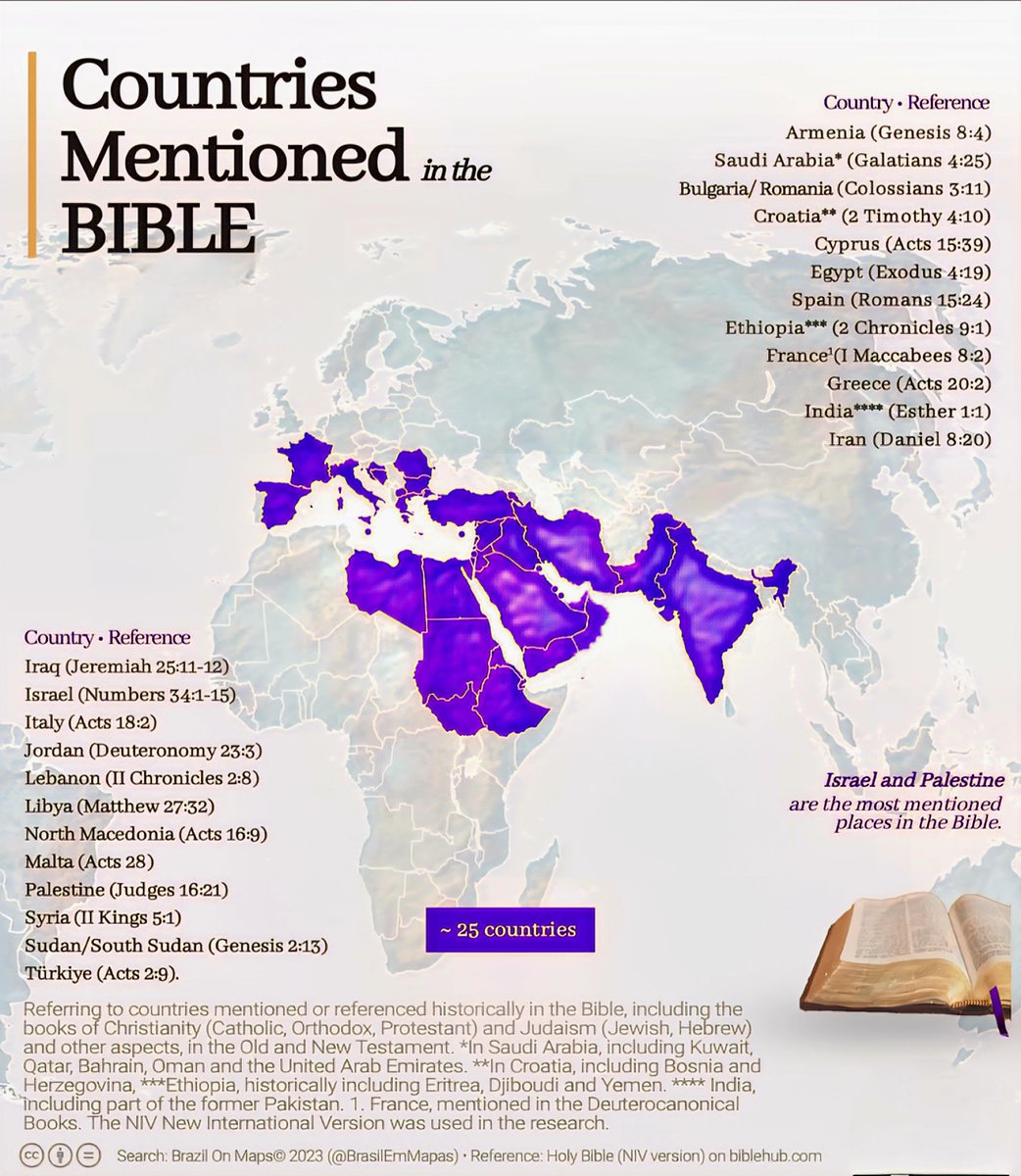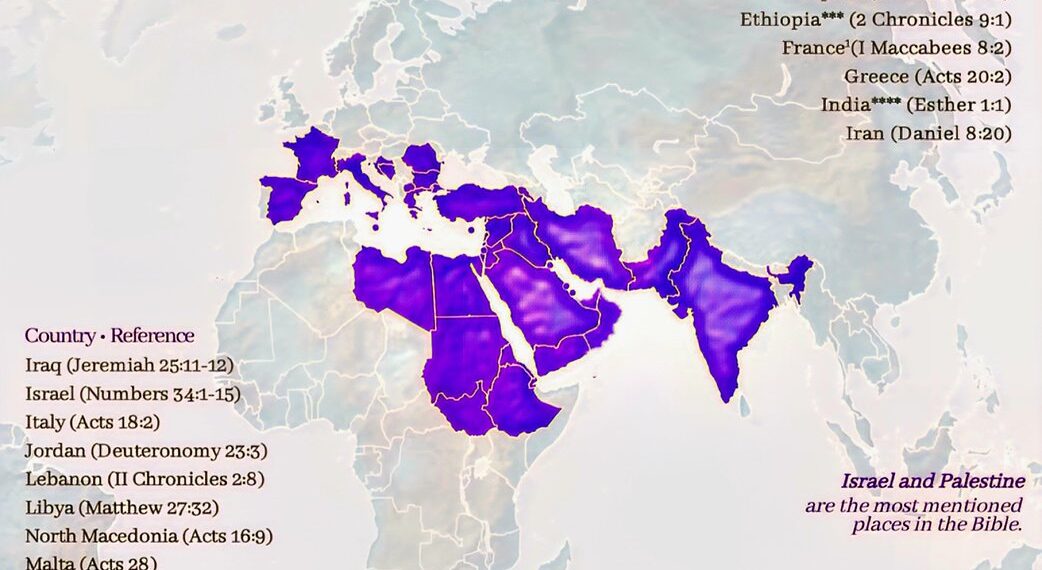Select Language:
The Most Notable Countries Mentioned in the Bible
1. Egypt: The Land of Oppression and Escape
Egypt is arguably the most frequently referenced nation in biblical texts. Known for its ancient civilization, Egypt is most famous for the story of the Israelites’ slavery and their subsequent exodus led by Moses. The Promised Land’s journey begins with their escape from Egyptian bondage, symbolizing liberation and divine intervention.
Historically, Egypt symbolizes both oppression and refuge in biblical stories. The narrative includes figures like Joseph, who rose from slavery to become a powerful leader in Egypt, and the Pharaoh’s obstinate refusal to release the Israelites. The story of the ten plagues and the parting of the Red Sea emphasizes Egypt’s pivotal role as both oppressor and a backdrop for divine miracles.
2. Israel and Judah: The Heart of Biblical History
The land of Israel and the ancient Kingdom of Judah are central to biblical history. This region is where most of the major stories unfold, including the lives of kings like David and Solomon, prophets such as Isaiah and Jeremiah, and Jesus Christ’s ministry.
Jerusalem, their capital, is the site of the Temple and numerous significant religious events. For centuries, Israel and Judah played a crucial role in spiritual and political developments, acting as the foundation of Jewish identity and faith. Their history is marked by periods of prosperity, exile, destruction, and eventual return, reflecting divine promises and judgments.
3. Babylon: A Symbol of Exile and Judgment
Babylon, located in present-day Iraq, represents conquest, exile, and divine judgment in biblical accounts. It was the superpower that captured Jerusalem and exiled the Jewish elite in 586 BC during the Babylonian captivity.
The story of Daniel in the lion’s den and the prophetic writings of Isaiah and Jeremiah highlight Babylon’s influence and its eventual downfall. The Book of Daniel also emphasizes the theme of divine sovereignty in the face of human empires, illustrating how God’s plan transcends earthly powers.
4. Persia: The Key to Returning Home
Persia, known today as Iran, played a significant role in biblical history as the empire that conquered Babylon and later permitted the Israelites to return to Jerusalem. King Cyrus the Great is celebrated for his decree allowing the Jews to rebuild the Temple in Jerusalem around 539 BC.
Biblical texts, especially in the Book of Ezra and Nehemiah, portray Persia as an instrument of divine will, facilitating the fulfillment of God’s promise to restore His people. Persia’s mention underscores themes of divine timing and providence in biblical narratives.
5. Assyria: The Instrument of Divine Punishment
Assyria was a formidable empire stretching across much of the Near East, notorious for its military campaigns and brutality. It is prominently mentioned as the agent of God’s punishment against Israel and Judah.
Prophets like Isaiah and Hosea warned of Assyria’s role in impending doom, including the destruction of Samaria and the exile of the northern tribes of Israel. Despite its might, biblical accounts predict the empire’s fall, illustrating divine sovereignty over worldly powers.
6. Moab and Ammon: Neighboring Nations with Religious Significance
Moab and Ammon, located east of Israel, are often depicted as neighboring nations with complex relationships with Israel. Their stories range from hostility to moments of cooperation.
In biblical stories, these kingdoms are frequently involved in conflicts, but also in interactions with Israel’s prophets. For example, King Balak of Moab hired Balaam to curse Israel, but divine intervention turned the curse into a blessing. These nations symbolize ongoing regional tensions and the importance of divine guidance.
7. Lebanon: The Mountain of Cedars and Sacred Sites
Lebanon is renowned for its ancient cedar trees, which were highly valued for construction and temple-building in biblical times. The cedars of Lebanon provided timber for Solomon’s Temple and other significant structures.
Additionally, Mount Lebanon was a sanctuary for pagan rituals before Israel’s establishment. The region’s natural resources and spiritual significance highlight its contribution to biblical narratives, representing divine provision and historical commerce.
8. Greece: The Influence of Hellenistic Culture
While not directly mentioned frequently, Greece’s influence becomes apparent during the Hellenistic period described in the New Testament. The spread of Greek culture and language during the Macedonian conquests affected the region where early Christianity emerged.
The writings of the Apostle Paul, particularly in Athens, show the interaction between biblical faith and Greek philosophy. Greece signifies the blending of cultural ideas and the spreading of Christianity across diverse civilizations.
Image Source:







